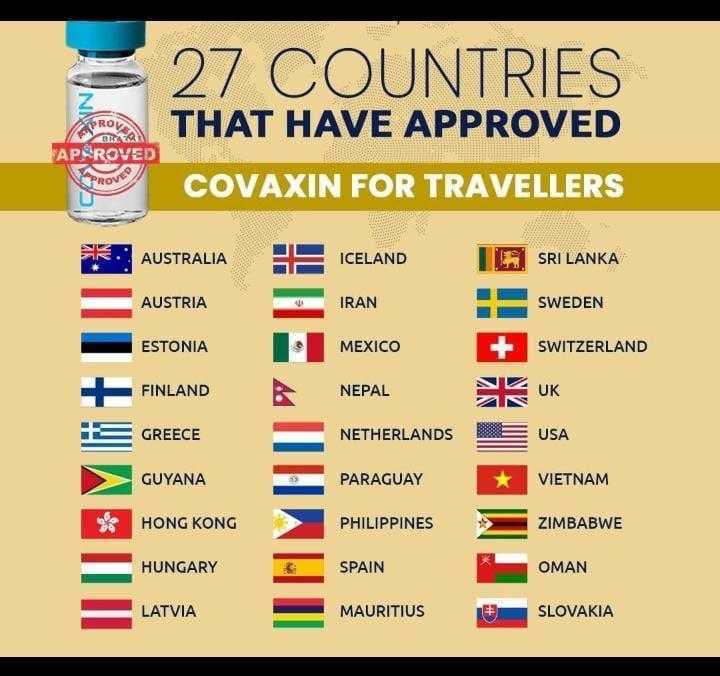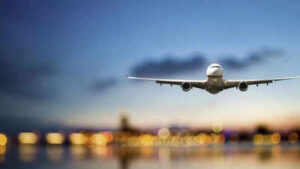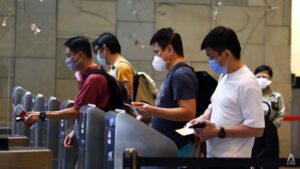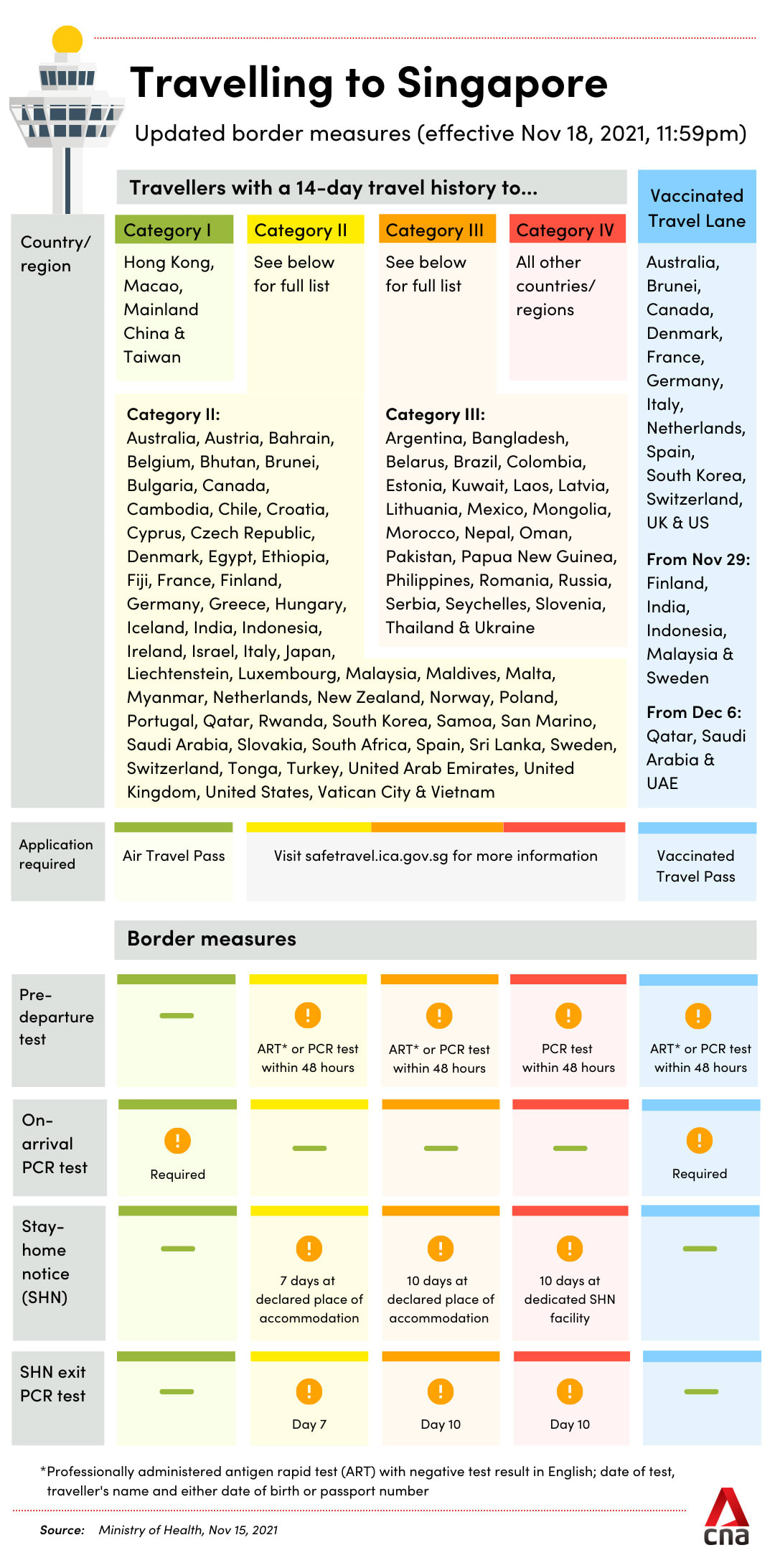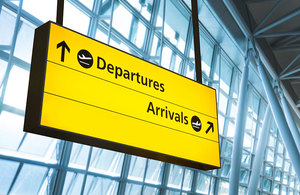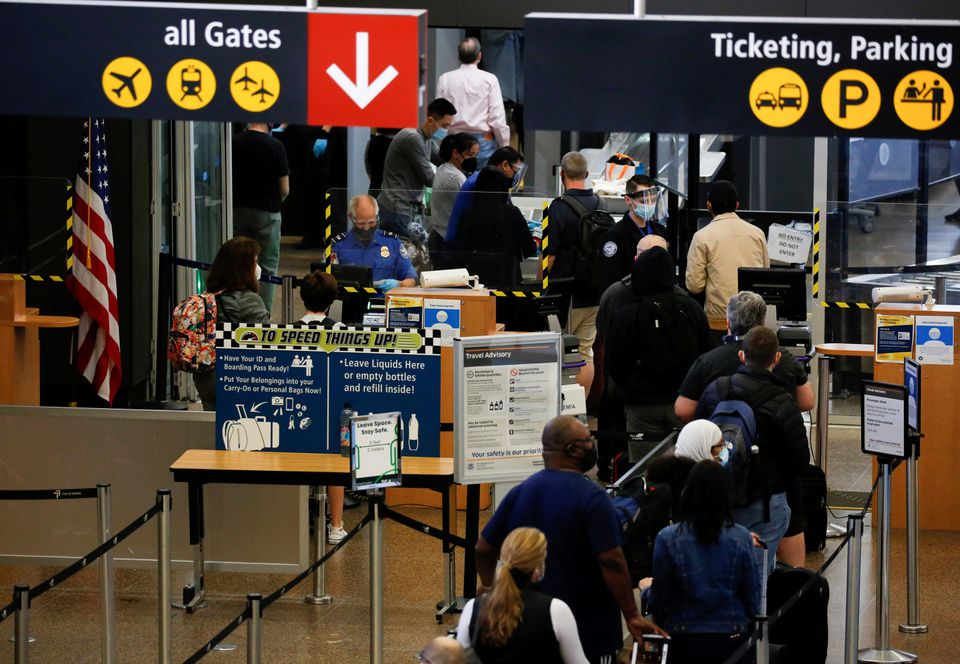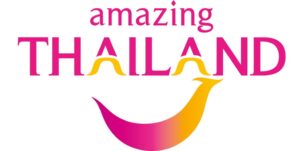[read more]
WHAT DO I NEED TO TAKE INTO CONSIDERATION WHEN PLANNING A TRIP TO THE NORDICS?
Before you travel, you should check the details of your travel insurance with a fine-tooth comb to ensure that you are covered in the case of Covid-19 related delays or cancellations. We recommend that you purchase a ‘cancel for any reason’ (CFAR) travel insurance policy.
You should also check the travel advice and restrictions in place in your country of origin as well as your transit destination.
Other things to consider include:
Making sure you can access funds to cover emergencies and unexpected changes and delays. Do not rely on a single form of payment (e.g. just one credit card).
Being prepared to follow the advice from local authorities while abroad, e.g. being ready and willing to comply with local isolation or quarantine requirements.
Making sure you have enough medication with you in case your trip becomes longer than initially planned.
Being prepared for financial and logistical disruptions to your travel.
Arranging extra support for family members or pets who may need care if you are overseas longer than planned.
Remembering that if you are older or have pre-existing medical conditions (such as asthma, diabetes, heart disease), you may be more likely to become severely ill if you catch the virus.
Checking the latest public health advice in the destination (country-specific links are found further down this page).
For Australian travellers: Australia has a reciprocal health care agreement with Finland, Norway and Sweden, and therefore you are entitled to publicly funded medically necessary care in those countries.
Being prepared to fill out pre-registration forms when entering a country, detailing contact details, travel dates, all hotels and other accommodation during your travels, and information on where you have travelled recently, whether you have any potential symptoms, and whether you have been in contact with an infected individual.
WHAT MEASURES ARE AIRPORTS AND AIRLINES TAKING TO HELP PROTECT PASSENGERS AND STAFF?
Airlines are working hard to ensure your safety when travelling with them. Additional measures and requirements in place include:
• Additional flight screening at the airport to make sure you are fit to fly
• Contactless check-in options and self-serve bag drop
• Physical distancing reminders and markers
• Hand sanitation stations and kits (e.g. sanitation wipes) at airports and inside the planes
• Enhanced disinfection of surfaces, both at airports and inside planes
• Adjustments to food and drink service to minimise touchpoints for staff and passengers
• Depending on your airline, both passengers and staff are to wear facemasks or coverings
• Where possible, the middle seats will be left empty (however, this is subject to passenger numbers and may not always be possible). If you have a seat in the middle, you may be asked to move to a window or aisle seat instead.
Please see the article AIRLINES: Your Essential Post COVID-19 Health & Safety Guide for more information on each airline.
Please note that according to the World Health Organization (WHO) the risk of getting infected on board an aircraft, is lower than on the ground due to the carefully controlled air quality in aircrafts. Total air change takes place 20-30 times per hour and any recirculated air is passed through high-efficiency particulate air (HEPA) filters also commonly used in hospital operating theatres and intensive care units.
IS IT SAFE TO TRAVEL TO SCANDINAVIA AND THE WIDER NORDIC REGION RIGHT NOW?
Most countries in the Nordic region have opened borders between carefully selected nations, and you can feel confident that once you are allowed to go (according to your country of origin and the destination), it is safe enough to do so – provided that you continue to adhere to precautionary guidelines, such as frequent hand-washing and social distancing. Travellers also need to respect any local regulations in place.
WHAT MEASURES ARE IN PLACE TO KEEP TRAVELLERS SAFE WHILE IN DESTINATION?
These are some of the commonly adopted measures that are in place in the Nordics:
• Sick people are required to stay at home
• Recommended distance between people is 1-2 meters
• Good hand hygienic is a must
• Queues (at reception, toilets, activities) are usually organised so that each person is at least 1m apart from those behind and in front of them
• Preferred payment method is contact free, i.e. credit cards
• Group sizes are kept small
• All decorative items that can’t be washed will be removed from hotel rooms
• Employers will be cleaning between guests and during the day
• Rental equipment will be cleaned between guests
• Recommendations on busses: Handle your own luggage, use the back door. The first two seats are to be kept vacant to ensure the safety of the driver. Only 50% occupancy is preferred in order to keep appropriate distance between passengers
WHAT TRAVEL RELATED RESTRICTIONS ARE IN PLACE IN SCANDINAVIA AND THE WIDER NORDIC REGION?
Countries in the EU and EEA (European Economic Area) have agreed on a coordinated approach to the restriction of free movement in response to the coronavirus pandemic. This includes a colour code (green / orange / yellow / grey) for the classification of regions based on the coronavirus situation there. They have also agreed on common criteria that they should apply when deciding whether to introduce travel restrictions and a common approach for travelers from ‘red areas’ (testing and quarantine). Therefore, if you reside in a country outside of the EEA, one highly useful place to get an overview of the situation as well as checking the status of border restrictions and vaccination certifications is the European Union’s Re-open EU site.
Currently, the EU recommends that member states should allow entry to the residents and citizens of the following “third countries” (non-EU/EEA):
- Australia
- New Zealand
- Rwanda
- Singapore
- South Korea
- Thailand
- China, Hong Kong and Macao subject to confirmation of reciprocity
Country-specific information and links are provided below.
Iceland
NEWS: All those who have been fully vaccinated against COVID-19 will be allowed to travel to Iceland without being subject to border measures, such as quarantine. This includes citizens outside the Schengen area, such as the UK and the USA! From the 26 July, vaccinated travellers need to show a negative PCR or antigen test at the start of their journey to Iceland. The antigen test usually costs much less than the PCR test and is offered in the departure area of many international airports with results ready in about 15 minutes. The test must be done no more than 72 hours before arrival in Iceland (at boarding).
Individuals who have not been vaccinated or overcome an infection must present a negative PCR test prior to boarding (can not use an antigen test).
Testing and quarantine of children: Children born in 2005 or later shall be tested at the borders. A child who travels with an individual who is subject to stay in quarantine shall stay with that person and can leave the quarantine if the second test of its co-traveller is negative. When the co-traveller is not required to stay in quarantine the same shall apply to the child. A child travelling alone is not required to stay in quarantine. While waiting for the test results the child needs to follow the rules for quarantine.
However, before booking / travelling to Iceland, please check the latest regarding COVID-19 and travelling to Iceland.
Finland
In line with the Government decision of Monday 15 July, persons who are able to present a certificate of a completed and approved COVID-19 vaccine course before entry can arrive in Finland from all countries starting on Monday 26 July 2021.
People travelling to Finland must take into account that a certificate of recovery from COVID-19 is an acceptable justification for entry into the country only for citizens of the EU and Schengen countries and for people residing in an EU or Schengen country.
However, due to frequent changes in Finland’s policies, please check Visit Finland’s latest advice regarding COVID-19 and travelling to Finland.
Also, if you are travelling to Finland, the FINENTRY site provides travellers with information and instructions on self-quarantine and coronavirus testing (including a link to make a booking for a test).
Norway
The Norwegian Government has implemented a three stage plan to ease travel entry restriction for international travellers to Norway. In short, Norway is now open to all travellers in the EU or Schengen Area, and “purple countries” such as Australia and New Zealand. Currently, residents of the United States are not permitted to enter Norway, but further announcements are expected in the second half of October so stay tuned!
See this map for more details on exemptions.
Also check the latest info regarding COVID-19 and travelling to Norway.
Sweden
The Government has decided to re-introduce a ban on entry to Sweden to prevent the virus that causes COVID-19 entering the country or being spread to other countries.
A temporary entry ban for entry from EU/EEA States and certain other states has been in force since February. As of 30 June, the Swedish regulation has been adapted to the EU regulation on a COVID certificate. This entails an entry ban on travel to Sweden from EU/EEA States unless a vaccination certificate, a test certificate, a certificate confirming recovery from COVID-19 or a corresponding certificate can be presented. The Government has decided to extend this regulation until 31 October 2021.
Entry from Denmark, Finland, Iceland and Norway is not subject to any entry restrictions.
A temporary ban on non-essential travel from countries outside the EU/EEA to Sweden, introduced following a call from the European Council and the European Commission, has been in effect since March 2020. Since February, the ban has included a requirement to present a certificate verifying a negative COVID-19 test result for entry into Sweden. To travel to Sweden from countries outside the EU/EEA, you must be covered by at least one of the exemptions from the entry ban and also be able to present a negative COVID-19 test or be exempt from the test requirement. The Government has decided to extend the travel ban until 31 October 2021
See the latest regarding COVID-19 and travelling to Sweden from Krisinformation
and Visit Sweden.
Denmark
Fully vaccinated persons who are permanent residents of orange or yellow countries (currently UK, USA, Canada, EU and AU/NZ are in this category) are no longer required to present a negative test or have a worthy purpose for travelling to Denmark, and they are exempt from the testing and isolation requirements on entering Denmark.
However, due to the frequent changes to allowed / banned nationalities, please check the updated entry rules for Denmark.
Also see the latest regarding COVID-19 and travelling to Denmark.
Greenland
From June 01, 2021, travel was reopened to Greenland with access from Denmark and Iceland. From 10 August, only fully vaccinated persons may travel to Greenland. Persons with residence in Greenland are exempt. Fully vaccinated persons are not required to quarantine or re-test upon arrival to Greenland.
Children between the age of 2 and 11 years are required to follow the same travel restrictions as their adult travel companions. This means that if the adult travel companion is fully vaccinated the children can also be retested the day after arrival to Greenland.
Note that you must have received the vaccination’s final injection at least 14 days prior to travel in order to be considered ‘fully vaccinated’.
See the latest regarding COVID-19 and travelling to Greenland.
Faroe Islands
The Faroe Islands’ authorities have announced that travelers who have fully received an approved COVID-19 vaccine are no longer required to quarantine for 6 days upon arrival in the Faroe Islands. You are considered fully vaccinated if the vaccine has been approved by the European Medicines Agency (EMA) and it has been at least 2 weeks and no longer than 12 months after the vaccination process has been completed.
For EU and Schengen travellers who are not vaccinated, self-quarantine has been removed however, this depends on the country you are coming from.
As of September 1st, 2021, the travel recommendations are as follows:
- Test up to 48 hours before departure to the Faroe Islands
- Test two days after arrival to Faroe Islands
- Travellers are encouraged to avoid large crowds and to be extra careful until the result from their second day test is available
See the latest regarding COVID-19 and travelling to the Faroe Islands.
Estonia, Latvia and Lithuania
All three Baltic countries have reopened their borders for tourists and have lifted quarantine requirements at entry for tourists who can present a certificate confirming the completion of vaccination or recovery from covid-19!
Travelling to Estonia, Latvia, Lithuania is possible for the following persons:
• Citizens and residents of the European Union, the Schengen area, the United Kingdom, Andorra, Monaco, San Marino and Vatican and asymptomatic individuals with a long-stay visa and their family members.
• Citizens of countries recommended by the Council of the European Union: Australia, Israel, Japan, New Zealand, South Korea, Rwanda, Thailand, Singapore.
For vaccinated persons and persons who have recovered from covid-19:
• Covid-19 test before the flight and when entering Estonia, Latvia, Lithuania – not required;
• Self-isolation when entering Estonia, Latvia, Lithuania – not required;
• International certificate or document proving the vaccination or recovery from covid-19 or EU Digital Covid Certificate – required;
• The electronic questionnaire must be filled before the actual arrival to Estonia, Latvia and Lithuania.
If you aren’t fully vaccinated or are recovering from covid, please ask us for further details.
See the full list of countries and restrictions for Estonia.
Also see the latest regarding COVID-19 and travelling to Estonia.
Check the latest regarding COVID-19 and travelling to Latvia.
See the latest regarding COVID-19 and travelling to Lithuania.
Russia
It is our understanding that citizens from Switzerland, South Korea, Turkey, Serbia, Japan, United Saudi Emirate, Egypt, and Cuba can travel to Russia, however they will need a tourist visa and a negative coronavirus test made under 48 hours before arrival.
See the latest regarding COVID-19 and travelling to Russia from the Russian Embassy in the UK and from the waytorussia travel guide.
Additional info
For an overview of the situation per country, especially the 14-day case average per 100,000 people per country (within Europe), please see the data at the European Centre for Disease Prevention and Control.
IF I BOOK A TRIP WITH 50 DEGREES NORTH, WHAT WOULD HAPPEN IF MY TRAVEL PLANS NEEDED TO CHANGE?
Rebooking can be done up to 18 months into the future if the postponement request is due to forced amendments (e.g. closed borders). In this case, the full deposit will be held in credit or transferred to a new booking, provided that we have not incurred any unrecoverable costs with some of the suppliers.
If the booking is cancelled by you for other reasons, the deposit is usually non-refundable and our normal booking conditions will apply. However, see our Book with Confidence page for more details on flexible booking conditions during the COVID-19 pandemic.
Also note that some exceptions / special terms and conditions are also available in some cases. Please contact our team to find out more.
We recommend purchasing a “cancel for any reason” travel insurancy policy.
WHAT HAPPENS IF I TEST POSITIVE FOR CORONAVIRUS AFTER ARRIVAL?
If a passenger tests positive, they may be offered to undergo further tests to determine whether they have an active infection. In this case, the passenger must self-isolate and provide detailed information on who they have come in close contact with, up to two days before the onset of their symptoms.
Needless to say, you will not be able to travel home until you are fully recovered. However, medical care in the Nordics is first class and you would be in good hands should you require treatment.
WHAT SHOULD I EXPECT WHEN RETURNING TO MY HOME COUNTRY?
In many cases, you are expected to provide contact details and quarantine / self-isolate for 14 days.
You should check the latest public health advice in your home country both before travelling and upon your return (links at the start of the page).
IMPORTANT NOTE – DISCLAIMER OF LIABILITY:
It is a requirement that you hold a valid passport and any required visas for your trip. It is your responsibility to ensure that you are in possession of the necessary documentation to comply with the laws and regulations of the countries to be visited. It is your responsibility to obtain vaccinations and preventative medicines as may be required for the duration of the trip.
The information contained on this page is provided in good faith, and is collated from various official sources. Every effort has been made to provide information that is accurate. However, materials contained above are subject change at any time by concerned authorities. We accept no liability or responsibility to any person as a consequence of any reliance upon the information contained above.
[/read]

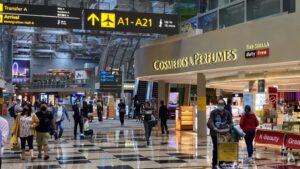
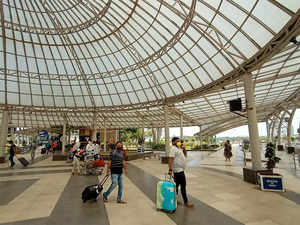 India may resume regular international flights from the middle of March as the aviation ministry has sought the health ministry’s approval to resume regular international flights. The health ministry’s approval is mandatory in this case due to the prevailing COVID situation across the globe.
India may resume regular international flights from the middle of March as the aviation ministry has sought the health ministry’s approval to resume regular international flights. The health ministry’s approval is mandatory in this case due to the prevailing COVID situation across the globe.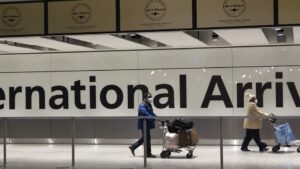 Government of India has issued fresh Covid-19 guidelines for international arriving passengers. As per the new guideline, the mandatory 72-hour report of RT-PCR is not required anymore and the travellers can show their Full Vaccination Certificate. Airlines will allow boarding to those passengers who have filled in all the information in the Self Declaration Form on the Air Suvidha portal and uploaded the negative RT-PCR test report or Covid -19 vaccination certificate.
Government of India has issued fresh Covid-19 guidelines for international arriving passengers. As per the new guideline, the mandatory 72-hour report of RT-PCR is not required anymore and the travellers can show their Full Vaccination Certificate. Airlines will allow boarding to those passengers who have filled in all the information in the Self Declaration Form on the Air Suvidha portal and uploaded the negative RT-PCR test report or Covid -19 vaccination certificate.